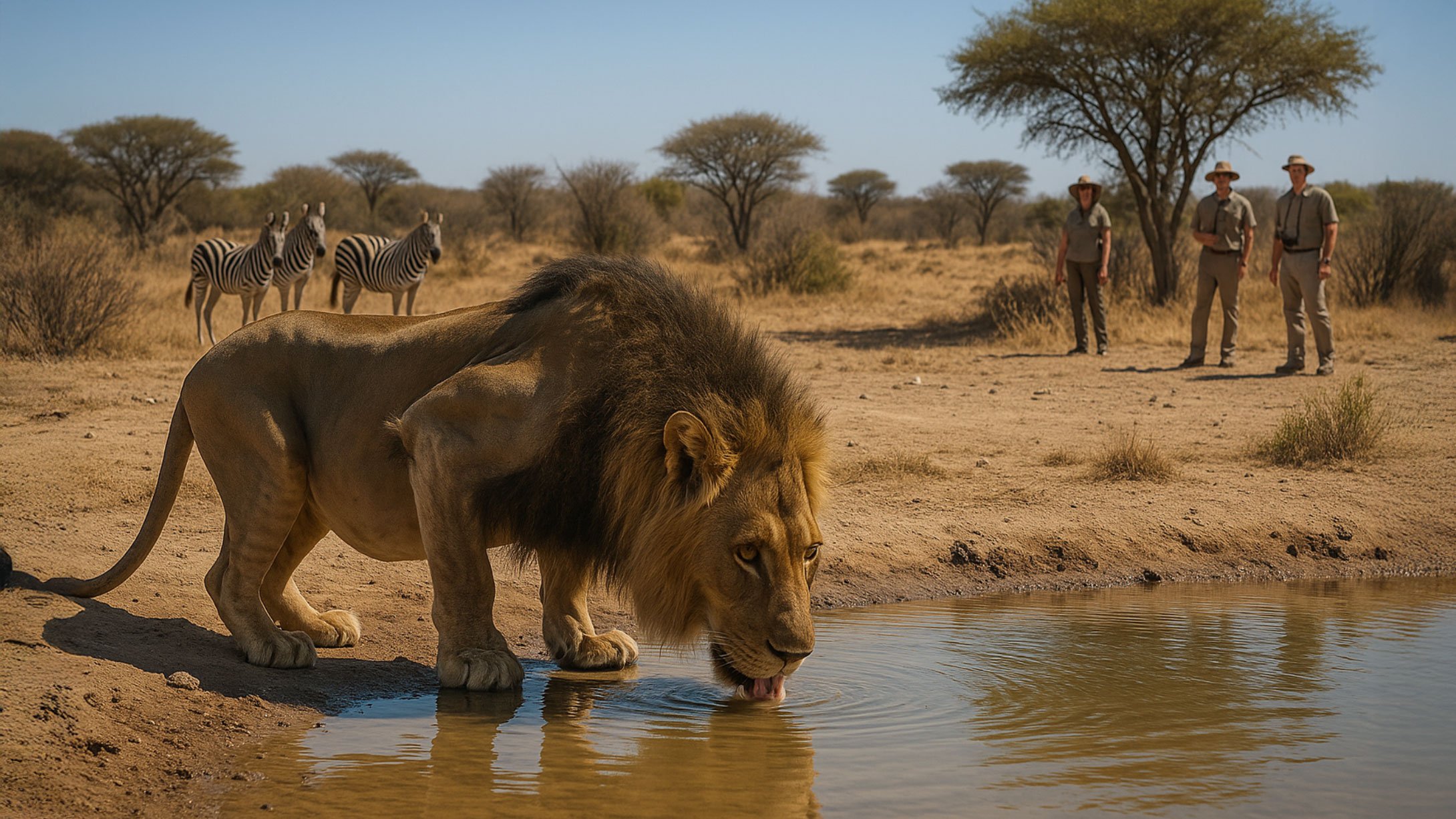The Last Roar of Lucifer: Roadside Zoo’s Collapse Sparks Hope for Wild Cats
Once billed as the place “where wild animals roam free” in Bandon, Oregon, the West Coast Game Park Safari has now fallen silent.
But silence, in this case, is a blessing.
For decades, the park masqueraded as a family-friendly zoo offering “hands-on” animal experiences. Behind the illusion was a grim reality—one that finally unraveled with the shocking May 27, 2025, arrest of owner Brian Tenney. Authorities seized 80 grams of meth, 44 firearms, and $1.6 million in cash and financial instruments from the property. But the true victims weren’t just human society—they were the 310 animals caged behind that park’s fences, many of whom endured years of neglect, stress, and solitary confinement.
Among them was Lucifer.
Lucifer was a black jaguar exploited for illegal public interactions, paraded like a selfie prop even after the Big Cat Public Safety Act became law in 2022. That law—passed thanks to the tireless efforts of advocates including Big Cat Rescue—was supposed to end public contact with dangerous big cats in the U.S. But Tenney didn’t stop. Even as Lucifer grew into a powerful and unpredictable adult, he was forced into encounters with visitors. When he became “too large to handle,” he was condemned to solitary confinement in a barren concrete pit.
Recent footage showed Lucifer emaciated, depressed, and defeated.
But now, Lucifer is free.
He and 14 other wild cats were relocated to reputable sanctuaries. Lucifer, now three years old, found a new beginning at The Wildcat Sanctuary in Minnesota. George, a 21-year-old chimpanzee and the last solitary chimp in a U.S. roadside zoo, was transferred to Chimpanzee Sanctuary Northwest—finally able to heal after losing his only companion, Daphne, in 2023.
From Deception to Disaster
Tenney inherited the zoo from his father, Robert Stanley Tenney, who operated it without scandal until retiring in 2009. Brian’s tenure, however, saw an increasingly disturbing pattern: animal neglect, USDA violations, and ultimately, criminal charges. The facility racked up dozens of federal citations since 2015, ranging from starving lions with protruding ribs and visible spines to filthy enclosures littered with molding food and rodent feces.
In 2016, two bears named Sugar and Spice were tragically shot after peacocks startled them into a frenzy. Later inspections revealed a dead coatimundi in its enclosure, a camel in such dire shape it had to be euthanized, and a capybara with untreated skin conditions.
USDA reports showed systemic failure: animals going unexamined by veterinarians, unsafe public feeding zones, and inadequate supervision.
An Industry Rooted in Suffering
The fall of the West Coast Game Park Safari is not just a singular scandal—it’s a microcosm of a broken industry. Roadside zoos, often unregulated and deceptively marketed, exploit animals under the guise of education. Behind the scenes, abuse and neglect are rampant. According to People for the Ethical Treatment of Animals (PETA), Lucifer was just one of many animals abused at this facility. They filed multiple complaints with federal and state agencies, leading to this long-overdue reckoning.
Wayne Pacelle of Animal Wellness Action summarized it best: “Neglect and even active mistreatment of animals is bound up with other criminal conduct… That appears to be the case here.”
And it’s not rare. Big cats used as props, confined to cages for life, and deprived of natural behaviors are a sad staple of these operations. The same disregard for animal welfare often accompanies other illegal activities—drug trafficking, weapon stockpiling, tax fraud.
The Silver Lining
Though this story is steeped in sadness, it’s not without hope. The 310 animals rescued from Tenney’s operation are now receiving care from professionals. Some, like Lucifer, have already found peace. Others are on their way to new lives where they’ll no longer be props or prisoners.
This rescue was made possible by the collective efforts of the Oregon Humane Society, state wildlife and agriculture departments, and sanctuaries that took them in. But it was also thanks to everyday people who noticed, spoke up, and refused to look away.
Where We Go From Here
This case is a loud call to action.
The Big Cat Public Safety Act was a monumental victory. But enforcement matters. Vigilance matters. And public awareness is crucial. Wild animals are not attractions. They’re not status symbols or money-makers. They are sentient beings with complex needs—and a vital role in the balance of ecosystems.
Organizations like Big Cat Rescue are working to stop this cycle of cruelty, funding real conservation, and pushing for laws that protect both animals and people.
You can help. Be a voice. Share their stories. Support sanctuaries. Say no to roadside zoos and the lies they sell. And if you can—donate to support those fighting for animals in the wild and those still recovering from captivity.
Let Lucifer’s story be the last of its kind.
Read more: https://www.animals24-7.org/2025/06/01/risk-taking-roadside-zoo-operator-busted-for-drugs-firearms-zoo-closed/












